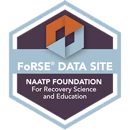March 4, 2024
Understanding addiction and co-occurring mental health conditions

As you inhale, the whoosh of smoke begins to quiet the storm raging in your head.
You inhale again. Thoughts slow. Feelings numb. The panic fades away. But so too does the piece of you that makes you, you.
Life is all about moments. Moments of happiness. Marriage, the birth of your first child, watching as they grow into the people they will be for the rest of their lives. Moments that make life worth living.
In a blink many of us can experience dark moments that shake our being to its very core, and leave the world feeling off-kilter, often indefinitely. Traumatic moments in which pandemics, abuse, loss, or extreme injuries occur, leading to years of suffering and mental anguish. Moments that break us.
As is human nature, our brains are hard-wired for survival causing us to ruminate on our negative experiences, forcing us to bear the weight of our traumas, so that we can learn from them. While this may have been an effective form of survival for our uncivilized ancestors, in modern society this survival mechanism has become debilitating for millions of people.
Unable to cope with their brains reconciling their experiences, trauma survivors often exhibit maladaptive behaviors in an effort to regulate their emotional wellbeing.
Maladaptive behaviors are defined as actions that prevent individuals from adapting, adjusting, or participating in everyday life in an effort to avoid stress and appear in the form of anger, avoidance, self-harm, or substance abuse.
While indulging in substances like drugs and alcohol help alleviate the immediate symptoms associated with trauma, the pervasive nature of their mental anguish can lead individuals to become dependent on their substance of choice, often leading to Substance Use Disorders (SUD). These co-occurring mental health disorders often exacerbate one another, further impacting the lives of those who suffer from Substance Use Disorder, ensuring that their trauma has a stronger hold on them, not a weaker one.
At Dilworth Center, we understand that co-occurring disorders often complicate the treatment and recovery process for both mental illness and SUD. That’s why we’re committed to providing holistic and comprehensive treatment for addiction and any co-occurring mental health disorders.
Our services include programs for adolescents, young adults, adults, families, and professionals. Additionally, we offer post-treatment relapse prevention to give our patients the tools and community to navigate recovery, as well as regular check-ins through standardized wellness surveys for up to 2 years after the completion of our treatment program.
Our initial assessment guarantees proper treatment placement, ensuring every individual receives the help they need whether it's with us, or other therapeutic services.
We provide the tools for those suffering from co-occurring disorders to get sober and stay sober. Dilworth Center alumni maintain an industry-leading 80% sobriety rate after two years (click the link to view more information about Dilworth Center's involvement in the National Association of Addiction Treatment Providers outcomes measurement study). We don’t just give our patients the ability to survive without drugs and alcohol. We give them the resources to thrive without drugs and alcohol.





